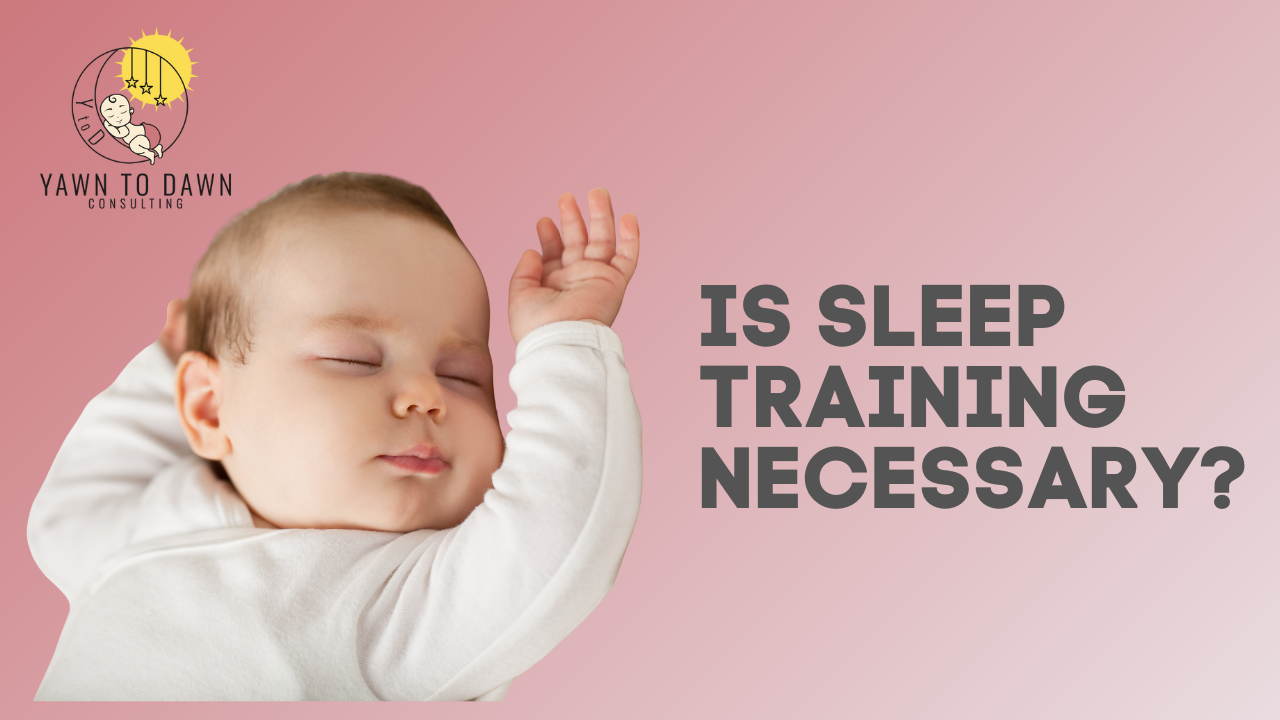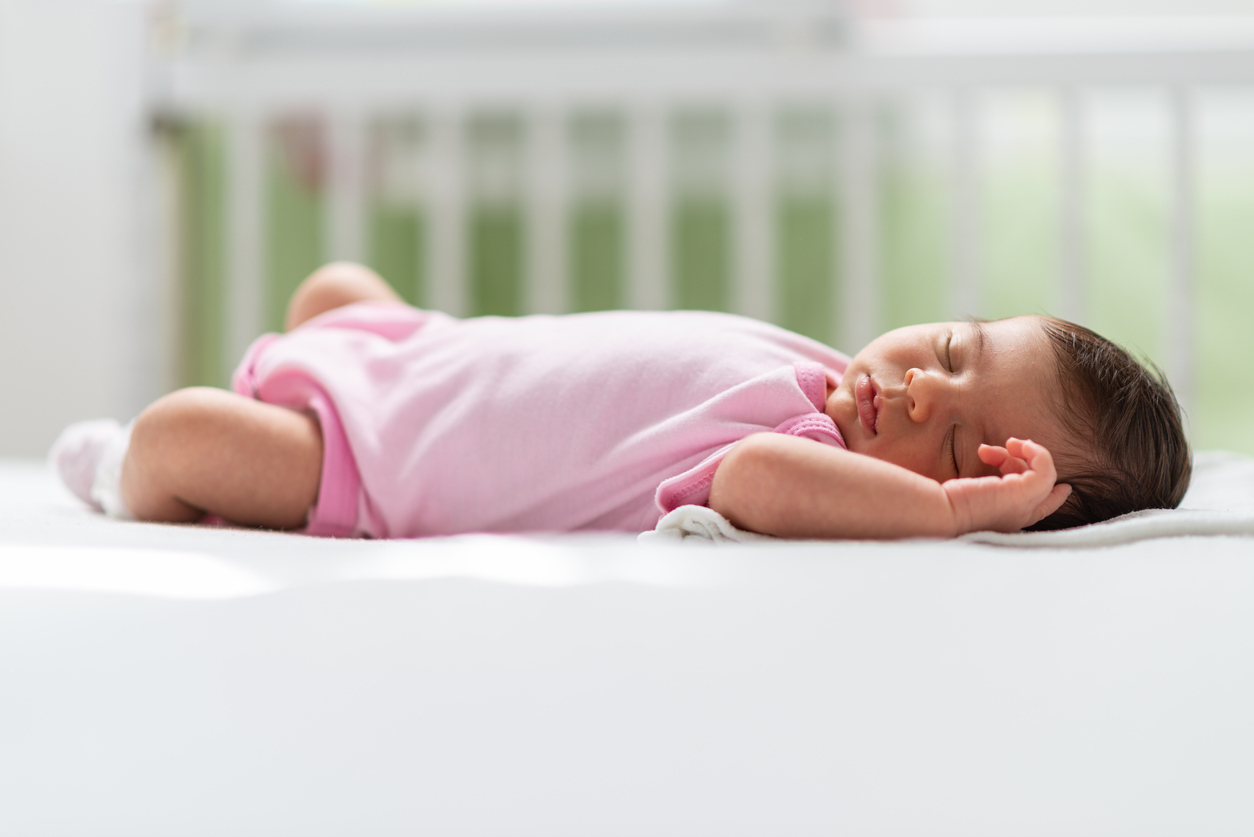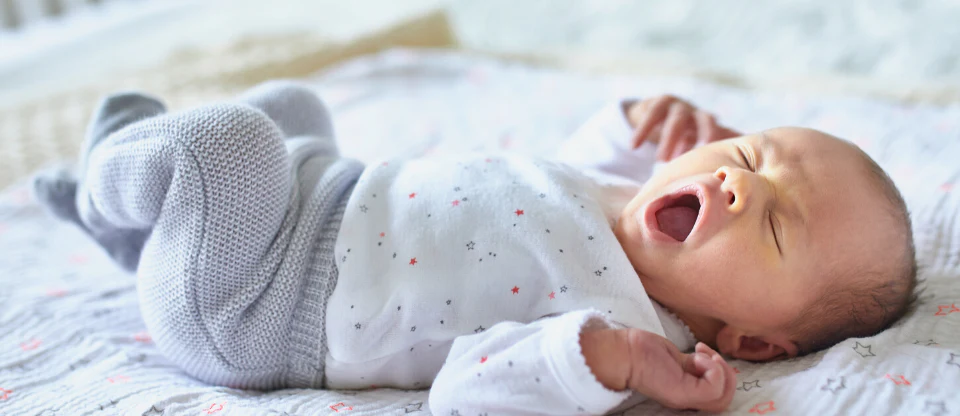Is Sleep Training Necessary
Aug 24, 2025
The short answer? No, sleep training isn’t necessary. But for many families, it can be life-changing.
As a certified pediatric sleep consultant, I want to be clear: your baby is not broken if they’re not sleeping through the night. Needing support to fall asleep is normal in infancy. But sleep training exists to help you, the parent, if your baby’s current sleep habits are affecting their rest and your well-being.
Let’s explore what this really means.
What Is Sleep Training?
Sleep training simply means helping your baby learn to fall asleep and connect sleep cycles independently without needing to be rocked, fed, or held every time they wake up.
It’s not one-size-fits-all. It’s not about endless crying. It’s about creating a routine and using a method that aligns with your baby’s age, your parenting style, and your sleep goals.
If you’d like to understand the different approaches, you can read my detailed guide: What Is the Best Sleep Training Method?.

When Is Sleep Training Helpful?
While some babies naturally settle into good sleep habits, many need guidance, especially if:
- They wake frequently at night but aren’t always hungry
- They rely on feeding or rocking to fall asleep
- Naps are short, inconsistent, or missing altogether
- You’re feeling exhausted, overwhelmed, or unsure what to try next
If your baby’s sleep patterns are affecting their mood, growth, or developmentor your physical and emotional health , it may be time to consider sleep training.
For practical tips if your baby shares a room with you, check out: How to Sleep Train When Baby Shares a Room.
Is Sleep Training Required for Healthy Development?
No. There’s no scientific evidence that babies must be sleep trained for healthy development. Many babies eventually learn to sleep independently on their own.
But for families who are struggling, responsive sleep training can make a world of difference. When done correctly, it helps babies:
- Get more consolidated and restorative sleep
- Learn to self-soothe when they wake between sleep cycles
- Establish predictable routines that support growth and regulation
And it helps parents feel more rested, confident, and connected to their child.
A landmark study by Hiscock et al. (2008) followed children five years after sleep training and found no negative effects on emotional health, behavior, or the parent-child bond. Other research published in Pediatrics (Price et al., 2012) also confirms that sleep training does not harm attachment or long-term outcomes.
Does Sleep Training Harm Attachment?
This is one of the most common concerns I hear, and it’s an important one.
Research consistently shows that responsive sleep training does not harm the parent-child bond. In fact, when parents are well-rested and consistent in their responses, children feel more secure, not less.
Attachment is built during the day through nurturing, love, and emotional availability. Sleep training does not erase any of thatit just supports better rest at night.
For a deeper dive, read: Will Sleep Training harm attachment?
My Personal Story
When my daughter was a baby, I vividly remember the sleepless nights. I would rock her endlessly, nurse her back to sleep every two hours, and hope she would stay down. The exhaustion was overwhelming.
I wasn’t just tired. I was anxious, irritable, and not showing up as the mom I wanted to be. I felt guilty even considering sleep training because of all the myths I had heard.
But when I finally learned about responsive, non-cry-it-out methods and implemented a plan, everything changed. My daughter started sleeping in longer stretches. I felt calmer, healthier, and more connected to her than ever before. That experience inspired me to become a pediatric sleep consultant so I could support other families through the same journey.
So… Is It Necessary?
Sleep training is a tool not a requirement.
You don’t have to sleep train. But if sleep is a daily struggle, and your current approach isn’t working anymore, you absolutely can sleep train with support, compassion, and without compromising your connection with your child.
It’s not about forcing sleep. It’s about creating the right conditions for it.
My Personal Philosophy
I don’t recommend rigid, one-size-fits-all solutions. And I don’t believe in cry-it-out for families who aren’t comfortable with it. But I do believe that sleep is essential for your baby, and for you.
That’s why I design responsive, non-CIO sleep training programs that meet your baby where they are and work with your family values.
If you’re ready to sleep better but don’t want to do it alone, explore my 1:1 Infant Sleep Training Programs. You’ll get personalized support, evidence-based strategies, and a plan that truly works.
Because sleep is not a luxury. It’s a necessity. And you deserve it.
Look At the reviews yourself


📚 References (APA Style)
Hiscock, H., Bayer, J., Hampton, A., Ukoumunne, O. C., & Wake, M. (2008). Long-term mother and child mental health effects of a population-based infant sleep intervention: Cluster-randomized, controlled trial. Pediatrics, 122(3), e621–e627. https://doi.org/10.1542/peds.2007-3783
Price, A. M., Wake, M., Ukoumunne, O. C., & Hiscock, H. (2012). Five-year follow-up of harms and benefits of behavioral infant sleep intervention: Randomized trial. Pediatrics, 130(4), 643–651. https://doi.org/10.1542/peds.2011-3467
Mindell, J. A., Kuhn, B., Lewin, D. S., Meltzer, L. J., & Sadeh, A. (2006). Behavioral treatment of bedtime problems and night wakings in infants and young children. Sleep, 29(10), 1263–1276. https://doi.org/10.1093/sleep/29.10.1263
Gradisar, M., Jackson, K., Spurrier, N. J., Gibson, J., Whitham, J., Williams, A. S., ... & Kennaway, D. J. (2016). Behavioral interventions for infant sleep problems: A randomized controlled trial. Pediatrics, 137(6), e20151486. https://doi.org/10.1542/peds.2015-1486



